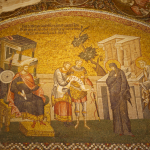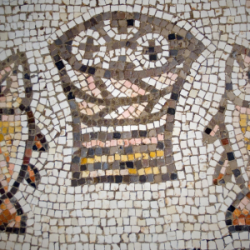
Again, today, Christians do the same thing. We pick something that triggers our own bigotry and attach moral value to it, describing it as sinful when intrinsically there really is nothing harmful or “wrong” involved and we are simply triggered by someone being different than ourselves. A example today would be certain denominations that still refuse to acknowledge women as equals to men in ministry though women are by no means less qualified or less righteous than men. But somehow they are defined as less than. Certain Christian communities continue to label members of the LGBTQ community as “sinners” when in all actuality they are simply different than cisgender, straight Christians. Different is not synonymous with sinful. Differences simply reveal the rich and beautiful diversity of our human family.
Part 3 of We Won’t Be Great Until Everyone Is Great
Welcome Readers! Please subscribe to Social Jesus Here.
(Read this series from the beginning at Part 1 and Part 2.)
The “sinners” were not the only ones that Pharisees used to marginalize Jesus by associating him with them. Tax collectors were also named. In the story Jesus tells in Luke, the “Pharisees and teachers of the law” were the older brother and the tax collectors were the younger brother. The Pharisees were more liberal with access to the present economic, social and political systems of their time. But just providing equal access or a level playing field to compete in an exploitative system doesn’t go far enough. It’s not enough to grant equal opportunity in system that in the end will produce a winner and a loser. What we want is a world that no longer creates losers, where some has to suffer for someone else to win. We want a world where we all thrive, where we all have enough. We want a world rooted not in competition with others for our survival but in cooperation where all are “made great” together. As Rev. Jacqui Lewis states, a world where, “No one is saved without all of us being saved.” The tax collectors had chosen complicity with Rome. We cannot gloss over that. Similarly, the younger brother in the story had also violated the values of the family to which he belonged. Yet many of the tax collectors in the story were responding to Jesus’ gospel of economic justice and resigning from their cooperation with the harm being committed to their fellow members of Jewish society. One example in Luke is Zacchaeus. Jesus was calling for those who had more than they needed to sell all of their superfluous possessions and give them to the poor (see Luke 12:33 and Luke 18:22). But Zacchaeus only offered “half” when he said: “Here and now I give half of my possessions to the poor” (Luke 19:8). Nonetheless the journey in his heart and choices had begun and this was enough to garner the proclamation of Jesus: “Today salvation has come to this house, because this man, too, is a son of Abraham” (Luke 19:9).
This parable isn’t really about giving assurance to prodigals. It affirms prodigals in their return, but the real conviction of the story is the way it critiques those who act in the way of the older brother or the Pharisees in our reading. The Pharisees were failing to understand and embrace God’s just future through their own kind of complicity with Roman oppression and their own lust for power. The tax collectors and sinners (the younger siblings in the parable) were embracing Jesus’ gospel vision for this kind of world in the here and now. The Pharisees of our story were only seeing how Jesus’ new world threatened their own aggrandizement and the place they had carved out in the Temple State’s complicity with Rome. Their vision of what our world could be wasn’t big enough. It wasn’t enough to enable more people to compete for power (so they could hold a place among the Sadducees). Jesus’ gospel was one where we all rise, and we rise by lifting each other up.
Are you receiving all of RHM’s free resources each week?
Begin each day being inspired toward love, compassion, justice and action. Free.
Sign up at HERE.



















